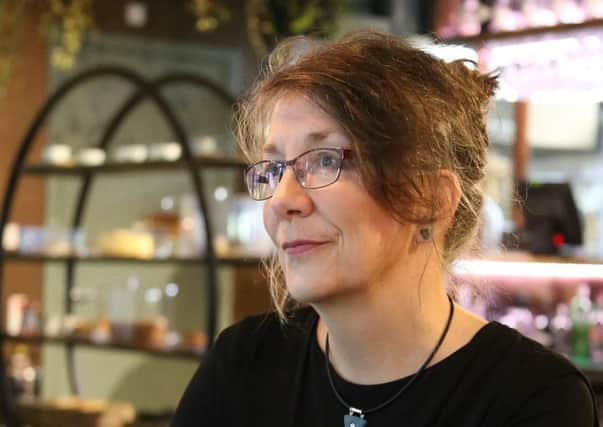Mauricewood pit disaster novel gets to the heart of the truth


Next time you’re travelling south from Edinburgh to Penicuik, look out for the schools. On the left, as you come into the town, in the grounds of the old Beeslack House, there’s a senior school; on the right, on open ground and behind some scrawny trees, is the primary. On 5 September 1889, some 900 feet beneath it, 63 miners died.
There’s no sign of the Mauricewood mine now, even though the pit disaster there was the worst in the history of the Lothian coalfield. For the first 100 years, there wasn’t even a memorial there to mark the fact.
Advertisement
Hide AdAdvertisement
Hide AdA few years previously, the law had demanded that all pits should have a second escape shaft, but there wasn’t one at Mauricewood apart from a small vent the size of a wardrobe that had to carry the steam pipes. It was blisteringly hot and no-one in their right mind could climb it for 100 feet let alone the 800 more to the surface. So when a pile of wood caught fire so far down, the miners died from smoke inhalation and the fire spread to the coal seam. To put it out, the pit was sealed, and subsequent flooding meant that it was months before the last of the bodies could be recovered. When they were brought to the surface, they were red from the ironstone, and part mummified, with fungus growing out of them.
The nation was shocked by the disaster, but only briefly. Hearing of it, Queen Victoria wrote a letter of condolence, and Gladstone’s wife told the owner of Beeslack House to say how upset her husband – then the local MP – had been at the news. Six months later, the last of the bodies – stinking, sodden, and flaking at the slightest touch – were buried. A subsequent inquiry cleared the company of negligence.
The Mauricewood disaster is the subject of Galashiels writer Dorothy Alexander’s first novel, and there’s a family link to it. Her great-grandmother Martha, whom she knew for the first 13 years of her life, was herself the daughter of one of miners killed in the disaster.
“We’d always known about it, but she never spoke about it, and neither did her own children. It wasn’t something that I’d always wanted to write about and indeed it was only in 2006 that I started researching it. And when I did, the story I wanted to tell wasn’t so much about the disaster itself as the effect it had on the victims, the reasons it happened and the social and financial pressures that allowed it to happen.”
By 2006, Alexander – winner of the last Macallan/Scotland on Sunday short story competition in 2002 – was well into her second career as a writer. She’d wanted to be one ever since she was 14, but that ambition itself had gone underground. After a history degree at Edinburgh, she trained as a nurse, working first as a nursing auxiliary in a geriatric unit (which she loved), then at the Borders General Hospital and at a GP practice in Melrose.
“For me, writing was a secret life: even my friends and family didn’t know how much it meant to me. So in my early 40s, I thought if I didn’t give my writing a chance, I never would, so I signed up for the MLitt course in creative writing at Glasgow”. It was in the years of the “three professors” – James Kelman, Alasdair Gray and Tom Leonard – and Leonard in particular was a massive influence on her writing. “As far as I was concerned, the course was a conversation with Tom Leonard that lasted for two years, and I didn’t want that conversation to finish.” In a sense, the PhD she then took in experimental poetry meant that it didn’t.
Advertisement
Hide AdAdvertisement
Hide AdDiscovering, after attending a Matthew Fitt workshop on writing in Scots, how natural it felt writing monologues in Scots “was a huge liberation”. Whereas she had always felt “slightly hobbled” writing stories in English, in Scots they poured out, like a seam buried for 20 years unexpectedly uncovered at the surface. She now writes prose in Scots, only then – somewhat reluctantly, one feels – translating it into English.
There is, perhaps, another legacy of her mentor Tom Leonard’s fastidiousness about the writing process in the way in which she tells the story of the Mauricewood disaster. “At first I was going to have a conventional story arc, with various people falling in love, Martha being rescued from the clutches of her unfeeling granny and so on. But then I thought no, that didn’t happen. I didn’t want to belittle anything that happened by making a drama out of it.”
Instead, the Mauricewood disaster is like a prism reflecting different ways in which its story could be told without the storyteller’s manipulation, threaded through with 50-word paragraphs from the historical record, yet spinning out into the death-inflected dreams and hardened lives of ordinary people.
It’s difficult to do, this business of capturing reality in words, bringing the past alive without trickery. The best way to show how well Alexander has succeeded is to say that the next time I drive into Penicuik, I’ll turn right at Mauricewood Drive and search out that memorial stone to the 63 miners 50 yards from the Edinburgh Road. And with no signs of that deeper, underground, past around me, at least I’ll understand what it’s there for.
• The Mauricewood Devils by Dorothy Alexander is published by Freight, price £8.99